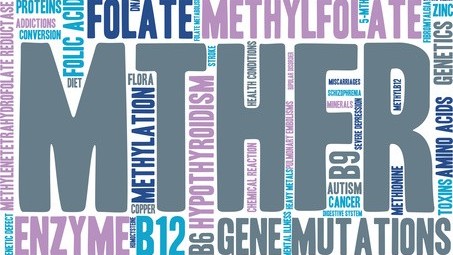What role does the MTHFR gene play in ADHD?

posted 10th February 2025
What role does the MTHFR gene play in ADHD?
- The MTHFR gene has been linked to ADHD and other neurological conditions.
- Mutations in the MTHFR gene has prompting deeper exploration into its potential links with ADHD.
- This genetic variation is considered to play a crucial role in understanding the complex origins and symptom management of ADHD.
How does the MTHFR gene mutation affect ADHD symptoms?
- Mutations in the MTHFR gene have a significant impact on ADHD symptoms.
- This genetic variation has been linked to challenges in attention, impulse control, and hyperactivity, which are key characteristics of ADHD.
- The MTHFR gene mutation is believed to influence brain chemistry and neurotransmitter function, thereby affecting the severity and manifestation of ADHD symptoms.
What are the potential benefits of MTHFR testing for ADHD?
- The potential benefits of MTHFR testing for ADHD include gaining deeper insights into the genetic factors contributing to the condition.
- This can help in understanding individual variations in symptom presentation and response to treatment.
- By identifying MTHFR mutations, I can tailor treatment approaches more effectively, potentially improving symptom management and overall well-being for individuals with ADHD.
Can MTHFR testing influence ADHD medication choices?
- Yes, MTHFR testing can influence ADHD medication choices.
- By identifying specific MTHFR gene mutations, I can better understand how your body processes certain medications.
- This information can guide the selection of medications and dosages that are more likely to be effective and have fewer side effects, leading to a more personalized and effective treatment plan for ADHD.
How does genetic testing impact ADHD treatment plans?
- Genetic testing can significantly impact ADHD treatment plans by providing personalized insights into your genetic makeup.
- This information can help me
- Tailor medication choices for you
- Understanding genetic variations can guide the selection of medications that are more likely to be effective and have fewer side effects for you
- Optimize dosages
- Genetic testing can inform the appropriate dosages of medications, ensuring better management of symptoms.
- Identify comorbidity
- Genetic insights can help identify other conditions that may coexist with ADHD, allowing for a more comprehensive treatment approach.
- Predict treatment response
- Genetic testing can help predict how you might respond to certain treatments, enabling more targeted and effective interventions.
If you would like to find out more about genetic testing, then please GetInTouch

